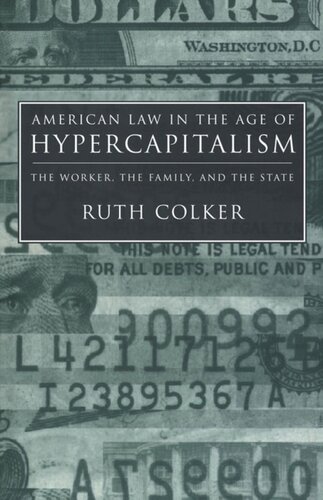

Most ebook files are in PDF format, so you can easily read them using various software such as Foxit Reader or directly on the Google Chrome browser.
Some ebook files are released by publishers in other formats such as .awz, .mobi, .epub, .fb2, etc. You may need to install specific software to read these formats on mobile/PC, such as Calibre.
Please read the tutorial at this link: https://ebookbell.com/faq
We offer FREE conversion to the popular formats you request; however, this may take some time. Therefore, right after payment, please email us, and we will try to provide the service as quickly as possible.
For some exceptional file formats or broken links (if any), please refrain from opening any disputes. Instead, email us first, and we will try to assist within a maximum of 6 hours.
EbookBell Team

4.3
48 reviewsSince the fall of communism, laissez-faire capitalism has experienced renewed popularity. Flush with victory, the United States has embraced a particularly narrow and single-minded definition of capitalism and aggressively exported it worldwide. The defining trait of this brand of capitalism is an unwavering reverence for the icons of the market. Although promoted as a laissez-faire form of capitalism, it actually reflects the very evils of selfishness and greed by entrepreneurs that concerned Adam Smith.
Capitalism, however, can thrive without an extreme emphasis on efficiency and personal autonomy. Americans often forget that theirs is a rather peculiar form of capitalism, that other Western nations successfully maintain capitalistic systems that are fundamentally more balanced and nuanced in their effect on society. The unnecessarily inhumane aspects of American capitalism become apparent when compared to Canadian and Western European societies, with their more generous policies regarding affirmative action, accommodation for disabled persons, and family and medical leave for pregnant woman and their partners.
In American Law in the Age of Hypercapitalism, Ruth Colker examines how American law purports to reflect--and actively promotes--a laissez-faire capitalism that disproportionately benefits the entrepreneurial class. Colker proposes that the quality of American life depends also on fairness and equality rather than simply the single-minded and formulaic pursuit of efficiency and utility.